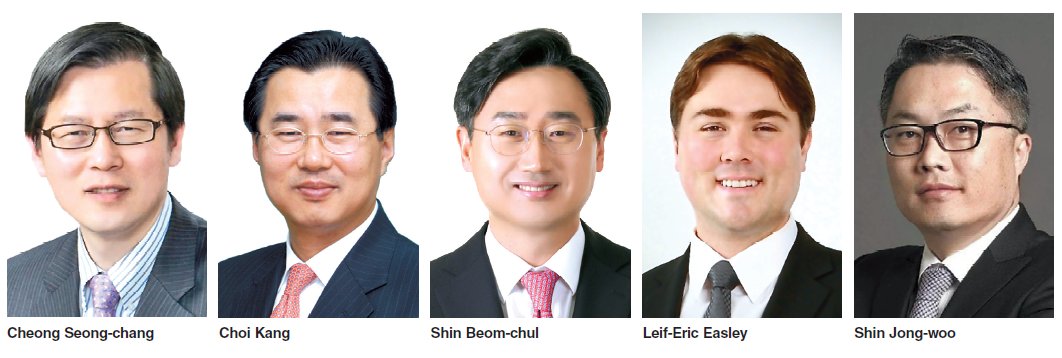 |
Kim Yo-jong, sister of North Korean leader Kim Jong-un (Yonhap) |
North Korea on Tuesday cut all inter-Korean communication channels in what it called the first step in exacting the price of betrayal by South Korea.
In addition to the move -- the seventh of its kind since 1976 -- the North’s official media reported that Pyongyang’s leaders have already reviewed phased plans for “projects against the enemy” saying that all activities concerning the South will now be hostile.
The North has officially blamed leaflets sent by South Korean civic groups, but five experts specializing in inter-Korean relations and defense issues say the North, driven by multiple motivations, is likely planning a number of provocations in its ultimate goal of influencing the US.
The North’s motivation
There are likely multiple motives and aims behind the move, but a common element is that the North is hoping for greater changes in pressuring Seoul -- a move it considers to have little risk, experts told The Korea Herald.
“In the short term (the aim) is to put an end to the leaflets, and tame the South. The long-term goal is to move the US to gain easing of sanctions,” said Shin Beom-chul, director of the Center for Diplomacy and Security at the Korea Research Institute for National Strategy.
He was echoed by Korea Defense and Security Forum senior analyst Shin Jong-woo, who says that the North is pressuring Seoul to persuade Washington in its drive to gain economic aid and sanctions relief.
According to Sejong Institute’s Center for North Korean Studies Director Cheong Seong-chang, the North is likely to be driven by its assessment that it has nothing to lose in inter-Korean relations.
“They consider that (South Korea’s) Moon Jae-in administration neglected the issue (of anti-North Korean leaflets), and prompted the North to conclude that they can expect nothing from the administration,” Cheong said.
 |
Experts discuss the ramifications of North Korea's latest push to disconnect all inter-Korean communication channels. |
Military provocation
While divided on the degree of provocations, the experts say that military actions from the North are inevitable.
“(The North) has military provocations in mind. Right now, they are building up the pretext,” Asan Institute for Policy Studies Vice President Choi Kang said.
“There being no response on military channels means that inter-Korean relations are entering a critical situation. Military show of force is possible, and after that even inter-Korean clashes could be possible.”
The Sejong Institute’s Cheong voiced similar views, saying the North is likely to resume testing missiles, including submarine-launched ballistic missiles.
Other experts, however, say that less provocative actions such as military exercises in the West Sea are more likely in the near future.
Shin says he considers it likely that the North will hold off on major provocations such as SLBM tests for the time being, as such a move taken at present could strain Pyongyang-Beijing relations. He added that if the North carries out a major provocation, it will likely be either in August to coincide with South Korea-US joint drills or in October in time for the 75th anniversary of the ruling Workers’ Party of Korea’s foundation.
Seoul’s next step
On the matter of the direction Seoul’s response should take, the experts agree that South Korea needs to make its position clearer, on both its willingness to engage and its resolve to respond to provocations.
“(Seoul) needs to send a strong message that while we want peace, we will do everything we can to defend peace. That’s because South Korea showing its strength was the premise whenever North Korea reached out for talks,” Choi said.
The Sejong Institute’s Cheong went further to say that Seoul needs to have a clearer understanding of the situation.
“We need to draw North Korea into dialogue while giving what the North needs, and we need to clearly understand what we can and cannot do,” Cheong said, adding that Seoul is focusing only on US-North Korea talks despite having seen that talks between the two alone cannot resolve the denuclearization issue.
“I think that North Korea’s disappointment in the South for changing the fundamentals of the talks, with the leaflet issue being added to it led to today’s development.”
Professor Leif-Eric Easley of Ewha Womans University says that Seoul should not veer from its engagement policy, but at the same time the country should not allow its policies to overshadow its values on issues such as human rights and security.
“Seoul should not give in to coercion or give away taxpayers’ money as a sign of goodwill, but rather test various initiatives to see where Pyongyang is willing to engage in reciprocal cooperation,” Easley said, adding that North Korea policies should not be allowed to damage Seoul’s alliance with the US or to contravene international sanctions.
By Choi He-suk (
cheesuk@heraldcorp.com)
Ahn Sung-mi (
sahn@heraldcorp.com)
Choi Si-young (
siyoungchoi@heraldcorp.com)









![[Today’s K-pop] Blackpink’s Jennie, Lisa invited to Coachella as solo acts](http://res.heraldm.com/phpwas/restmb_idxmake.php?idx=644&simg=/content/image/2024/11/21/20241121050099_0.jpg)